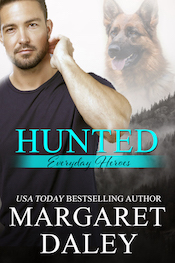
1. What made you start writing?
I remember writing as far back as grade school. In my English classes we would often be required to write a short story, a poem or an essay. I always enjoyed doing this and it was one of the very few things that seemed to come easy. In one instance, I can recall our fifth grade teacher passing magazine photos to all of us and asking us to write a short story about the picture we received. She had given me a photograph of two men playing handball, so I wrote a story about one of the men who was being blackmailed. The handball was a bomb and if they quit playing, it would go off. Now I’m not sure what defect in my psyche launched that idea, but it was sure fun to write.
2. How long have you been writing? When did you sell your first book?
I’ve been writing – and submitting – since the early 1990’s. But I wrote and submitted for about 12 years before I saw my first sale. I had written an article for The Christian Standard and paused at the mailbox to ask God to either let the right editor find this, or to remove the burden of wanting to write. I had enough at that point and was getting tired of all the rejections.
God didn’t remove desire to write. I heard from The Standard six days later. They wanted to publish my article and said it would come out in twelve months. Instead, it came out two months later and was published on my birthday. With that encouragement, I began to write my novel.
I wrote Original Sin over the course of several months and went to the Write To Publish conference in Wheaton, Illinois. The first publisher I submitted it to expressed an interest but ultimately declined. A year later, I returned to the conference and was able to secure a three book contract with Harvest House. Original Sin was released in March of the following year (2006) and the contract was extended by two more in July.
3. How do you handle rejections?
I don’t like them, but I also don’t take them personally. I try to keep my eye on the prize and take the long term view. They go with the territory and if you want to write you need to be prepared to face them. The best advice I can give is to accept the rejection, submit the piece to someone else, and go back to work on your next project.
4. Why do you write?
I can’t not write. I love the process. I enjoy plotting, writing, re-writing and submitting. I think at some level you must enjoy the process if you are going to continue doing this. There should be something about this that makes your life better.
5. What would you be doing with your free time if you weren’t writing?
I enjoy spending time with my family. I am very big into bible study (I’m studying Ezekiel right now) and I love history. I also like traveling, haunting old bookstores, and following boxing.
6. What are you working on right now?
My next book in the Colton Parker series, “The Lost Sheep”, is coming out next month so I’m gearing up for that. I will also have my first stand-alone, “White Soul”, coming out in March of next year. It is a novel about an undercover DEA agent who penetrates the Cuban “mafia” in Miami. It was by far the most difficult I’ve written. Trying to keep the protagonist’s name straight (his real name or his undercover name) was an absolute nightmare. But I still loved doing it.
7. Do you put yourself in your books/characters?
In a sense, yes. I tend to be a bit of a wise acre, much like Colton Parker, so that part of me tends to leak through. But other than that, no. However, since all of my characters come from me I guess you could say that I pass a bit of my literary DNA on to them.
8. Tell us about the book you have out right now.
“The Lost Sheep” is the fourth in the Colton Parker Mystery series and is, by far, the most personal of all the novels. Throughout the series, Colton has wrestled with his deteriorating relationship with his daughter, Callie. In “Sheep” things have finally come to a head and Colton must go to Las Vegas to find his missing daughter.
This novel does not involve his professional activities. Instead, he finds himself confronting evil on several different levels; the city, Callie’s activities, and his own beliefs. I’ve tried very hard to make this a highly textured novel where the plot and the subplot will merge seamlessly and conclude in a way that will resonate with the reader long after the book is finished. Whether I’ve succeeded or not, is left to the reader.
9. Do you have any advice for other writers?
If you feel compelled to write, then you must write and you must not let anyone tell you otherwise. But take the time to learn the craft. Read as much as you can in the genre (or nonfiction, if that’s your inclination) in which you want to write. Go to conferences, talk to other writers, and read writing instruction books. Approach your writing as a craft, an art. Approach publishing as a business. Be thick skinned and be resilient.
10. How important is faith in your books?
My faith in Christ is what drives me to write in the first place. I could have written for the secular market, many Christians do, and that would be perfectly fine. But I promised Christ that if He opened the door for me, I would write for Him for the rest of my life. Consequently, I have developed a personal Mission Statement which says that anything I write will be designed to point the reader of my work back to the Bible as being trustworthy and true. So when I wrote “The Root of All Evil”, for example, I wanted to write about a family that loves money more than they do each other and I wanted to show the consequences of that. When I wrote “Seventy Times Seven”, I wanted to point the reader back to Jesus comment that if you do not forgive your enemies, God will not forgive you.
However, while faith plays a very important role in my writing, I also don’t want to preach. Jesus didn’t in his parables and I don’t feel the need to do that with my work.
11. What themes do you like to write about?
I’ve noticed that all of my books deal with family. It wasn’t a conscious decision, but that certainly seems to be the case. But themes are important in my writing and I begin each novel with some concept of a theme in mind. I think it serves the plot well by tying everything together.
12. What is your favorite book you’ve written and why?
I really enjoyed “The Lost Sheep”. It gave me a chance to tie up some loose ends in Colton Parker’s life and to explore an aspect of evil that I’ve wanted to write about for a long time.
13. You created a protagonist named Colton Parker. How hard is it to write the same main character over a series of books? What difficulties do you face with doing a series?
Writing a series character is a double-edged sword. On the one hand, you have characters that are already fleshed out and which readers are already following. On the other hand, you already have characters that are fleshed out and this can get boring.
I like Colton. I like his “free-spirit” and I like being able to say things through him that I would never say in real life. There is a lot about him that needs to be written and I have several story lines already developed for him.
But I also want to stretch as a writer and try things that are more complicated and that don’t necessarily revolve around the crime genre. Trying new things expands my creativity. One of the hardest pitfalls to avoid with a series character – in fact, I’d say the hardest thing – is to not repeat yourself. Sue Grafton has said that she keeps voluminous journals of each of the books she writes in her alphabet series, just to be sure that she doesn’t repeat herself.
14. What is your writing schedule like?
I still practice podiatry so I generally arrive home at 6 p.m., eat dinner, spend some time with my family, and then begin writing at 8 or 9 p.m. I write until I have a thousand words and then quit, unless I’m in the flow then I’ll write a bit more. When I quit for the evening, I try to quit in the middle of a sentence or paragraph. It makes it easier to start the next day.
When the weekend arrives, I rise early and write until I can get 5000 words. Sometimes they’re all good, and sometimes I end up deleting half of them. I also write on my lunch hour, if I get one (and then I write long hand on a legal pad) and if I have a patient who fails to show up, I write then also.
15. What did you do for the FBI?
I clerked. My original intent was to follow my family into law enforcement and become an FBI agent. Clerking for them was a very nice way of getting a foot up on the competition. But somewhere along the line my career goals changed and I went into medicine.



